Did you know that provisions in the Fair Work Act for casuals were recently amended? All Australian businesses employing 15 or more employees were given to 27
th September 2021 to assess whether casual employees who commenced prior to 27
th March 2021 are eligible for appointment as a permanent employee (casual conversion) and to make an offer of permanent employment.
What do I need to do?
If you haven’t already undertaken your assessment for those employed before 27
th March 2021 you will need to check whether your casual employees have:
- been employed for 12 months or greater;
- worked a regular pattern of hours for at least the last 6-months and
- could continue to work this pattern of hours as a part-time or full-time employee without any significant adjustment
If you answer yes to all of the above questions, your casual employee will likely need to receive an offer of permanent employment. Casual conversion can only be rejected on the basis of reasonable business grounds that include, for example, the position will cease to exist in the coming 12 months, the employee’s work hours will be significantly reduced or that there will be significant changes to the employee’s work pattern. A decision not to proceed with casual conversion must be provided in writing to your casual employee outlining the reasons why the conversion will not proceed. To accept an offer to convert, employees need to respond to their employer in writing within 21 days after getting the offer. If they don’t respond, the employer can assume that they have declined the offer.
What about casuals who started after 27th March and future casual employees?
For all casual employees who commenced after 27
th March 2021 an assessment needs to be undertaken at their 12-month anniversary date to determine eligibility for permanent employment by reviewing the above criteria. If your casual employee meets the criteria, an offer of permanent employment must be made within 21 days of reaching their 12-month anniversary date.
Tip: We recommend making a diary note to assess eligibility requirements for each new casual employee commencing with your business on their 12-month anniversary date or slightly prior.
It is also now a requirement to provide all-new casual employees with the Fair Work Casual Employment Information Statement together with their contract of employment. The statement can be accessed from the Fair Work Ombudsman website at:
https://www.fairwork.gov.au/employee-entitlements/national-employment-standards/casual-employment-information-statement and you can access the relevant employment contract template from your HR kit.
What if I employ less than 15 employees?
For employers with less than 15 employees although you are not required to routinely manage casual conversion as required for larger employers you must still review a request for casual conversion made by an employee, assess the request against the same set of criteria and respond within 21 days of the request being made.
Reach out to us at Business 360 if you would like further information regarding eligibility requirements for casual conversion to permanent employment, support to complete casual conversion eligibility assessments and requests or support to complete a contract of employment template.
Fair Work Commission has been given the power to make stop orders in relation to sexual harassment in the workplace
What’s changed?
In similar fashion to the Fair Work Commission’s power to make stop orders in respect to workplace bullying from 11
th November a worker who reasonably believes they have been sexually harassed at work may now apply to the FWC for an order to stop and address the sexual harassment. An application can be made after a single occasion or instance. It does not have to be a repeated or be an ongoing situation to lodge an application.
What does this mean?
The Fair Work Commission can make an order it considers appropriate where it satisfied that:
- a worker has been sexually harassed at work by one or more individuals and
- there is a risk that the sexual harassment will continue.
Stop orders can include requiring individuals including other employees, customers, clients and visitors to a workplace to stop sexual harassment, requiring the employer to monitor the behaviour of individuals and ensure compliance with the employer’s sexual harassment policy.
What do I need to do?
We recommend every business conduct refresher training at their next WHS Toolbox Talk. Refer to your HR Employee Handbook for a copy of the Bullying and Harassment Policy.
For further background information visit:
https://www.fairwork.gov.au/about-us/news-and-media-releases/website-news/new-sexual-harassment-protections-take-effect
Safe Work Australia News
During October Safe Work Australia is promoting
think safe, work safe be safe throughout Australia. Find the events happening in your region or get involved by creating your own initiatives with resources from the
National Safe Work Month kit.
Your business might like to participate in the “have a safety chat over a cuppa” initiative. Follow these simple steps and play an active part in National Safe Work Month:
- Download the Safety Chat Checklist
- Promote your chat with an editable poster
- If your meeting is online you can even download the National Safe Work Month video call background to share with your team members.
You can access the Safe Work posters and background at
https://www.safeworkaustralia.gov.au/national-safe-work-month/campaign-kit#event
As part of National Safe Work Month, Safe Work Australia recognises Mental Health Day on 10 October 2021. Guidance material on work-related psychological health and safety is available by visiting
https://www.safeworkaustralia.gov.au/doc/work-related-psychological-health-and-safety-systematic-approach-meeting-your-duties to help you understand your obligations to minimise work-related risks to psychological health and safety.
If you haven’t already signed up for the Business360 WHS package, don’t hesitate to reach out to us for an obligation free discussion.

